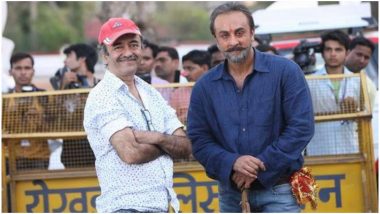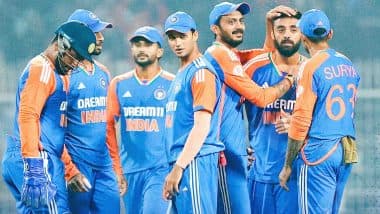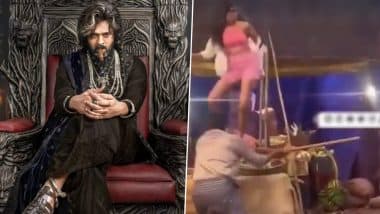Going by its box office run, Ranbir Kapoor's latest film, Sanju, is all set to become the highest grossing film of the year. It has already got the credit of having the highest opening weekend of all time for a Bollywood movie, beating Salman Khan's Tiger Zinda Hai in the process. So what made Sanju draw the audiences in large numbers to the theatres? Three main factors - director Rajkumar Hirani's box office clout, the intrigue about Sanjay Dutt's life and the perfect casting of Ranbir Kapoor along with the feel-good trailers.
In my review, I had mentioned how well Sanju works as a film, thanks to the direction, the writing and the excellent performances of Ranbir, Vicky Kaushal and Paresh Rawal. However, as a biopic, Sanju is an exercise of conveniences as it aims to endear Dutt more to the public (Munna Bhai 3 would have done a much better job anyway). In telling his side of the story, the movie ignores some of the patchy incidents in Dutt's life and gives a tailored narration that suits the cleansing process. And expectedly, the move worked, as many of the audience members in the show I watched were heard muttering about how they felt sorry for Dutt.
Whether this is a right move for Bollywood to indulge in propaganda is something I leave up to you, readers. But you can't deny how smartly Hirani and his co-writer Abhijat Joshi have used incidents from Dutt's life to make him some sort of an 'inspiration', despite Dutt trying to tell his kids to not be like him. Here are five things that Hirani did right in making Dutt's image cleaner.
Making Dutt gullible rather than the hero
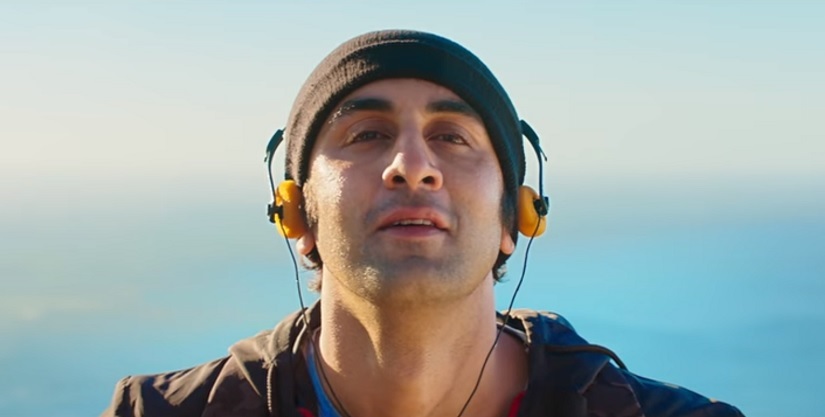
Azhar and Sanju were two so-called 'biopics' made to show a different side of two tainted celebs for the public. So what makes Sanju a better effort than Azhar that it saves itself the ridicule from the critics? Unlike the Azharuddin biopic, Sanju accepts the fact that Sanjay Dutt is no hero IRL, at least not openly. Yes, his coming out of drug addiction and him choosing not to escape from India during the whole TADA conviction, gives heroic touches to the man who brought troubles upon himself. But Sanju escapes the wrath of the public because it paints Sanjay Dutt as a victim of circumstances, media spotlight and manipulations, rather than a hero who took others' sins upon himself (which is something I am sure Salman Khan's biopic would aim for, if and when it gets made).
Ranbir Kapoor's casting
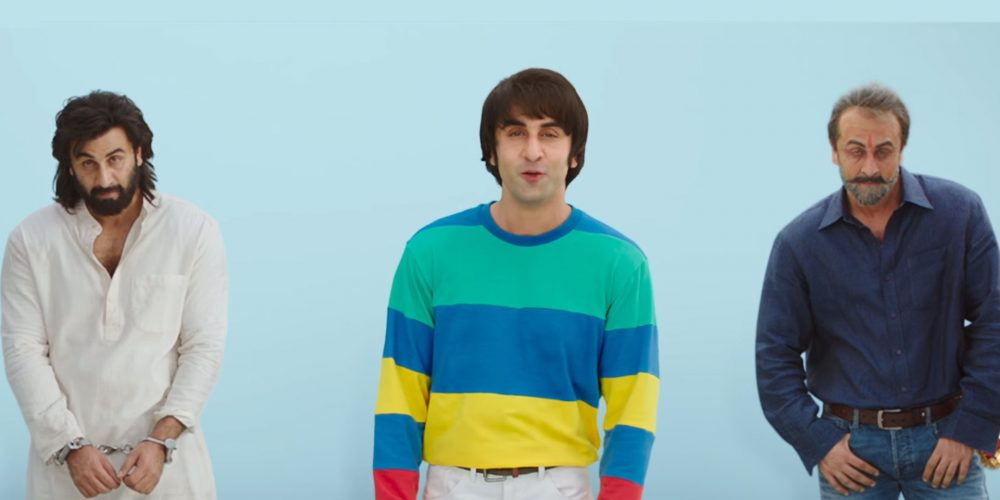
No, I am not talking about how brilliant Ranbir Kapoor's performance was and how uncannily similar he looked like Sanjay Dutt. The point I want to discuss here is how the makers scored a huge brownie point by bringing in Ranbir Kapoor on board. Unlike Sanjay Dutt who boasts of a macho, bad-boy image, Ranbir has this rather sensitive, warm perception around him which Hirani has capitalised on. Like we mentioned in the previous point, the makers were going for making Dutt a gullible person who needs our vindication, and Ranbir's innocent, puppy-like persona works here big time! This would not have worked with the same impact, if producer Vidhu Vinod Chopra had his way and had cast Ranveer Singh instead.
Smart mix of humour and emotions to skid over messy portions
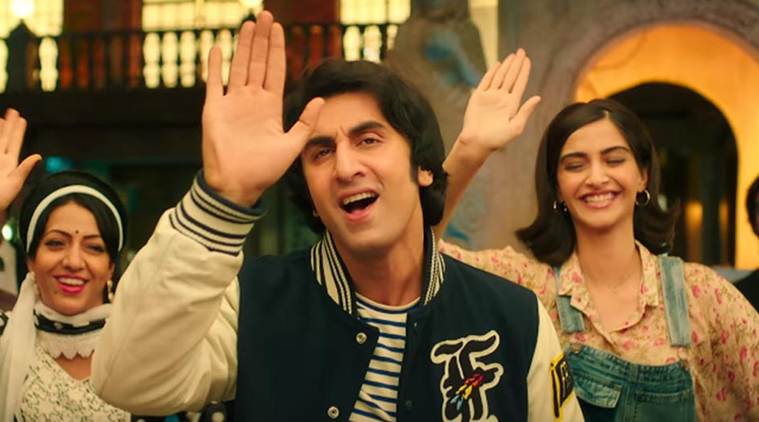
The controversies that come in the focus of Sanju have been Dutt's drug addiction phase in his early days and the TADA case. Whenever the movie has to depict certain portions that would give a completely antagonistic view of Dutt, Hirani plays off the scenes with humour. The one scene that comes to my mind is when Sanju, in his drug-induced state, goes to pay respects to his girlfriend (Sonam Kapoor)'s dead father (Boman Irani). It is definitely a dark scene, as we see Dutt making a mess of someone's death thanks to his addiction. But the comical depiction makes the whole scene come out cutesy, in spite of the fact that his girlfriend is shown grieving over his actions. Another scene to note is when Dutt sleeps with his BFF's girlfriend (Karishma Tanna) to check her 'loyalty'. And when humour doesn't work in certain scenes, there is always the emotional wrangling, like the guilt Dutt is seen going through after using cocaine in the same room as his comatose, dying mother. There is some really smart writing here, as both Joshi and Hirani know how to catch the audience's nerve and win sympathy points for Dutt.
Relying on the virtue of Sunil Dutt's positive persona
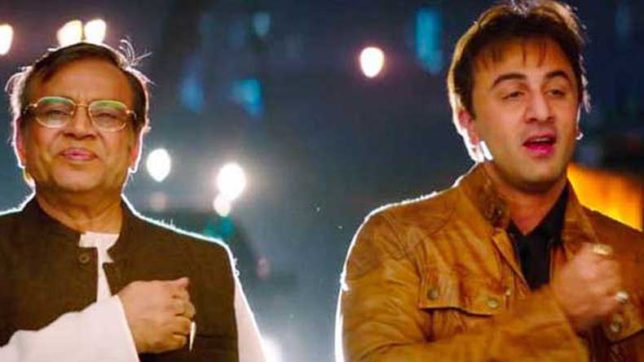
While the movie may be about Sanjay Dutt (or rather a conveniently skewered version of him), the real hero in Sanju is the late Sunil Dutt (played by Paresh Rawal). Save for desperately trying to keep his son out of jail (which any father would do), there is nary anything bad to say about the Bollywood legend, whose public service had worn him a lot of admirers, even after his sad demise a decade back. Some of the best moments in the film involve Dutt Sr. (on whose life, a biopic should have been made), and the movie benefits from the virtue of the father-son relationship. It has a brilliant tactic by Hirani to let this bonding, along with Dutt's friendship with Kamli), be the focus of Sanju.
Ignoring the 'lesser' controversies
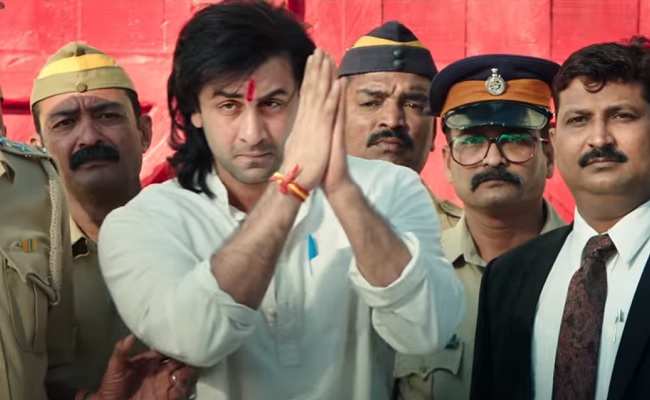
In its core, Sanju focuses on just two controversies in Dutt's life - his drug addiction and the illegal arms possession case. The other controversies of his life are either ignored or mentioned as a humorous or Gandhi-giri invoking after-thought. The makers conveniently forget the two troubled marriages Dutt had, before he settled with Maanyata, while his alleged underworld connections are restricted to one awkward Munnabhai-like episode (involving a don played by Sayaji Shinde). And if you expected to see some of Dutt's Bollywood affairs and skirmishes, then Sanju is not a movie for you!
Agree with our views expressed in the article? Please share your thoughts in the comments section below.
(The above story first appeared on LatestLY on Jul 02, 2018 01:28 PM IST. For more news and updates on politics, world, sports, entertainment and lifestyle, log on to our website latestly.com).







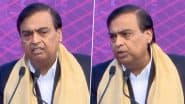





 Quickly
Quickly








